Fresh calls for end to greyhound racing in Scotland
- Published
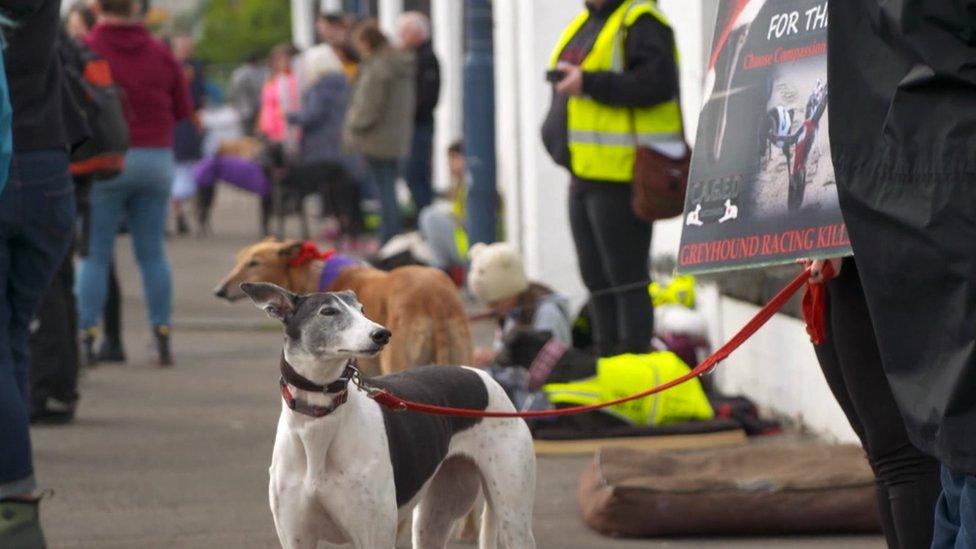
Campaigners are calling for greyhound racing to be banned
Greyhound racing is "outdated and cruel" and has no place in modern Scotland, according to campaigners.
Calls for the sport to be banned have been stepped up after UK-wide figures showed that almost 1,000 dogs died within the racing industry last year.
Governing body, the Greyhound Board of Great Britain (GBGB), insisted the numbers were a small fraction of the overall participation.
Protests are held on a weekly basis at Shawfield Stadium in Glasgow.
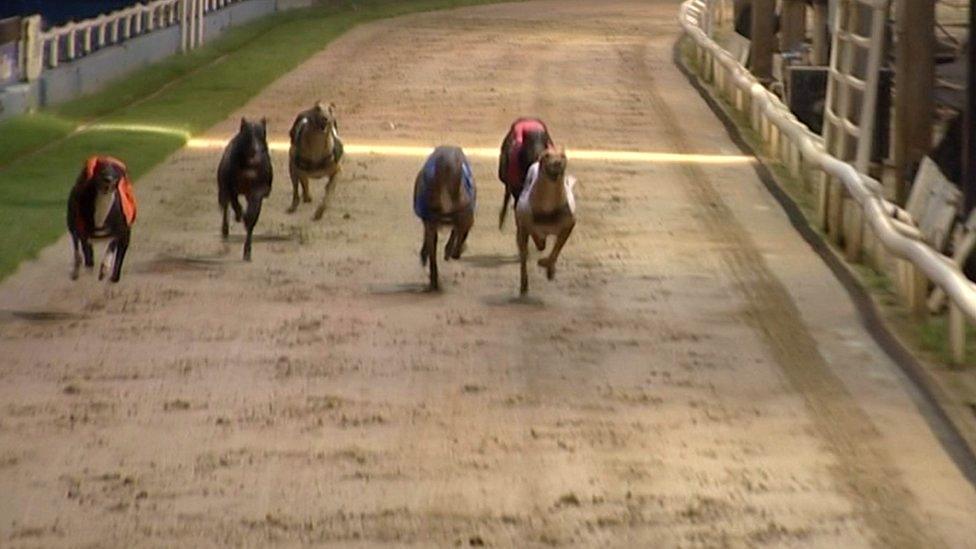
Shawfield Stadium in Glasgow is Scotland's only registered greyhound racing track
Greyhound racing is part of the multi-million pound gambling industry and is watched by hundreds of thousands of people in Britain each year.
In March 2018, the GBGB launched the "Greyhound Commitment", external which it said set out its expectations of how the sport and industry should be run "with welfare at its heart".
It also published, for the first time, figures for the number of dogs injured and euthanised within the sport.
The second set of annual figures, external - showing injuries and deaths in 2018 - has now been made available.
Across the UK, a total of 932 racing greyhounds died last year, with 242 of these deaths happening trackside.
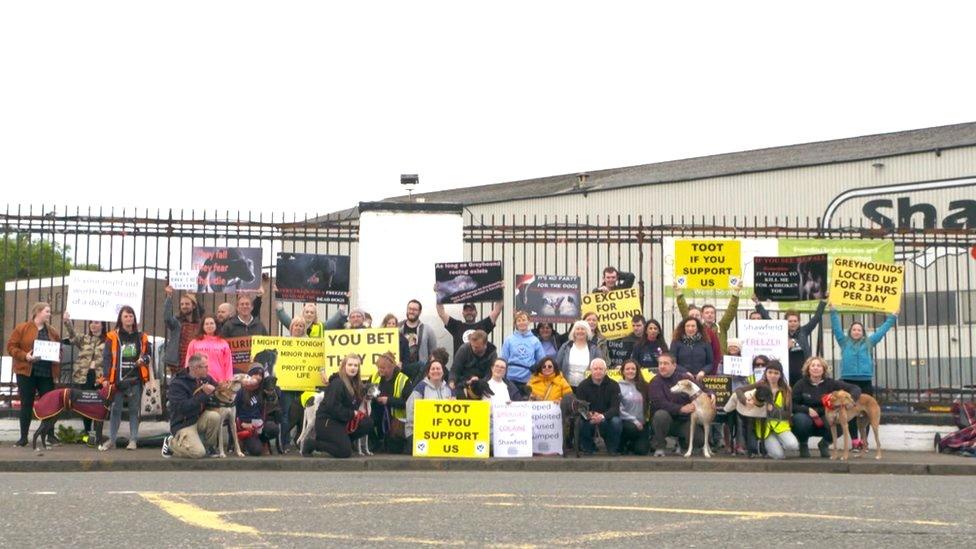
Protests are held every Saturday evening outside Shawfield Stadium
Hundreds of other racing dogs at the end of their track career were put to sleep. The reasons varied and included treatments costs being too high, no home being found or they were designated unsuitable for homing.
A total of 104 dogs died from terminal illness, natural causes or other reasons, and 72 were sudden deaths.
The figures also showed that a total of 4,963 injuries were sustained by dogs within the greyhound racing industry last year.
Shawfield in Glasgow is Scotland's only registered greyhound racing stadium.
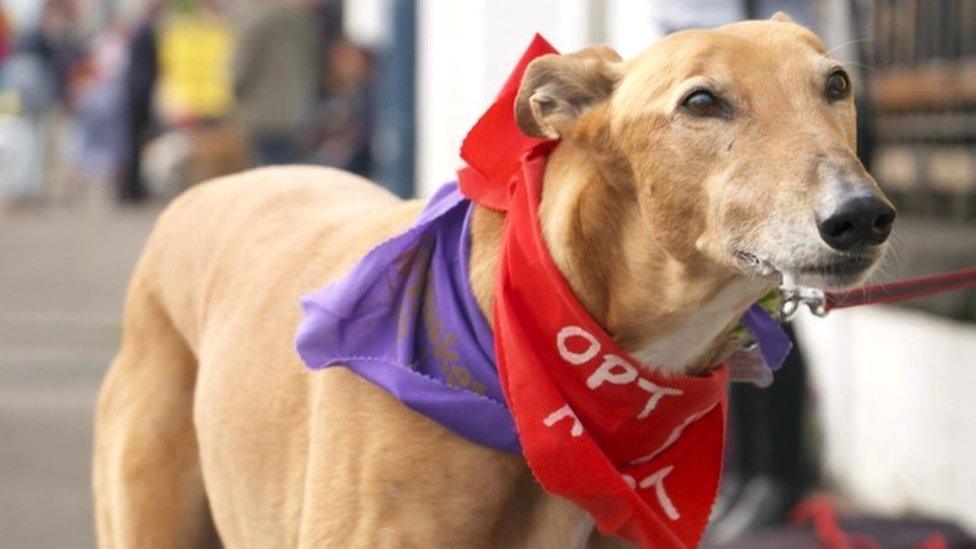
Protesters want to raise awareness about the negative effects they say racing has on the animals that take part
Gill Docherty, who organises a protest there every Saturday evening, told BBC Scotland's The Nine programme: "Greyhound racing is something that should be confined to the history books in Scotland and the UK.
"It's outdated, it's cruel and it's causing the deaths of thousands of dogs. We just feel like there is no place for it in our country anymore.
"This is a completely peaceful protest. We offer our leaflets to those going inside and stand with our placards. If people want to engage with us then we do that."
She added: "We've been coming here for two-and-a-half years and the support we get from the general public is huge."
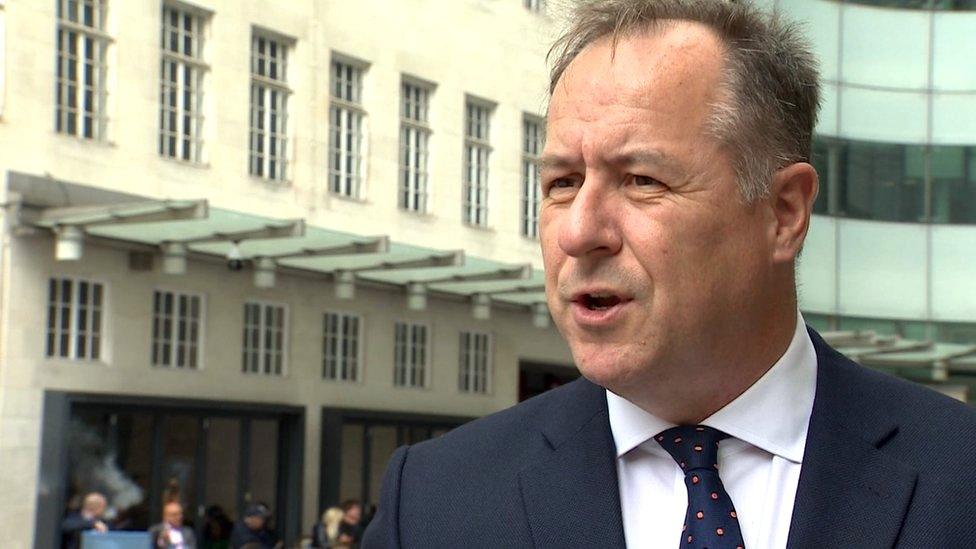
Mark Bird from the GBGB said the industry was working to reduce the number of injuries and deaths
The GBGB point to the fact 87.9% of retiring greyhounds were successfully homed by charities or retained within the sport in 2018.
"One death is unacceptable to most people, but these are working dogs, they are part of entertainment in the same way that horse racing is," said Mark Bird, managing director of GBGB.
He added: "We will always strive to get those numbers down to the bare minimum."
The GBGB said progress was being made and its "commitment" to improving standards included providing funding to help dog owners meet veterinary costs.
It also said young people entering the sport were being trained in how to care for racing greyhounds.
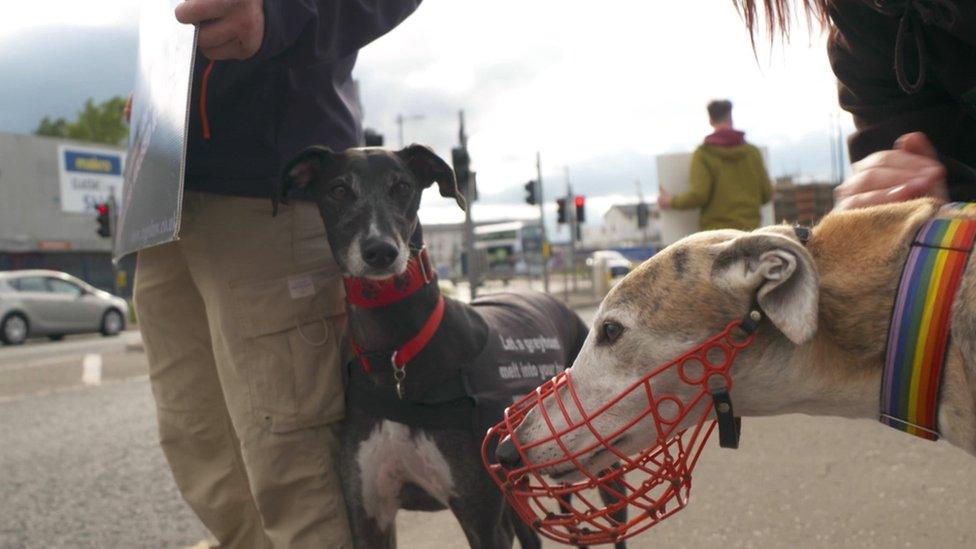
Another of the Scottish campaigners, Yasmin Taylor, said she was concerned by the injuries some dogs suffered as a result of being involved in racing.
"I have had a rescued greyhound that actually raced and came out in a terrible state.
"He had hardly any teeth and had to get most of them taken out. He had injuries that weren't treated and I know what these dogs go through.
"It's been banned in so many countries. Why not here?"
Responding to the issues raised by campaigners, Mr Bird added: "There were 6,000 more dog runs last year than there were in 2017 so actually the injury rate is only up 0.1%. That is not as bad as people make it out to be.
"What we are trying to do is reduce those injuries year-on-year."
- Published28 February 2019
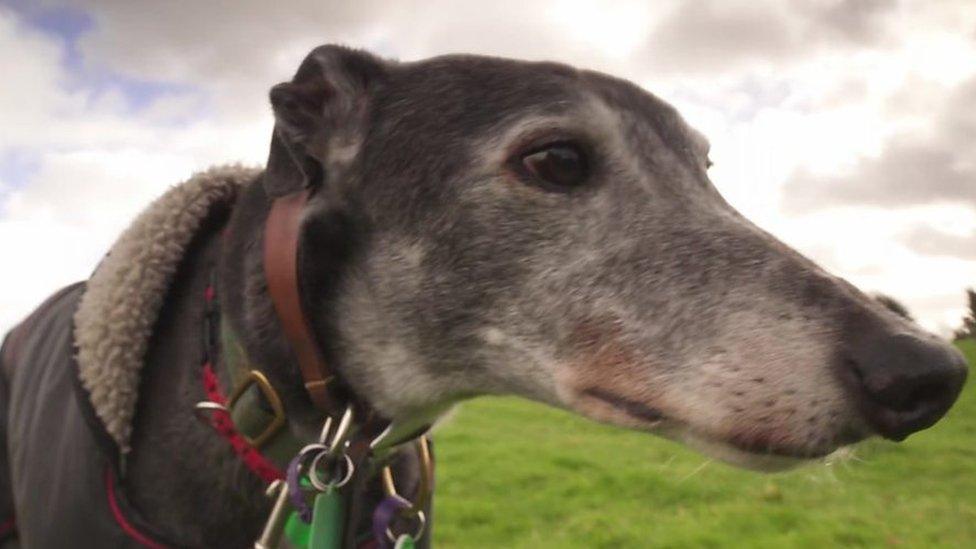
- Published28 February 2019
